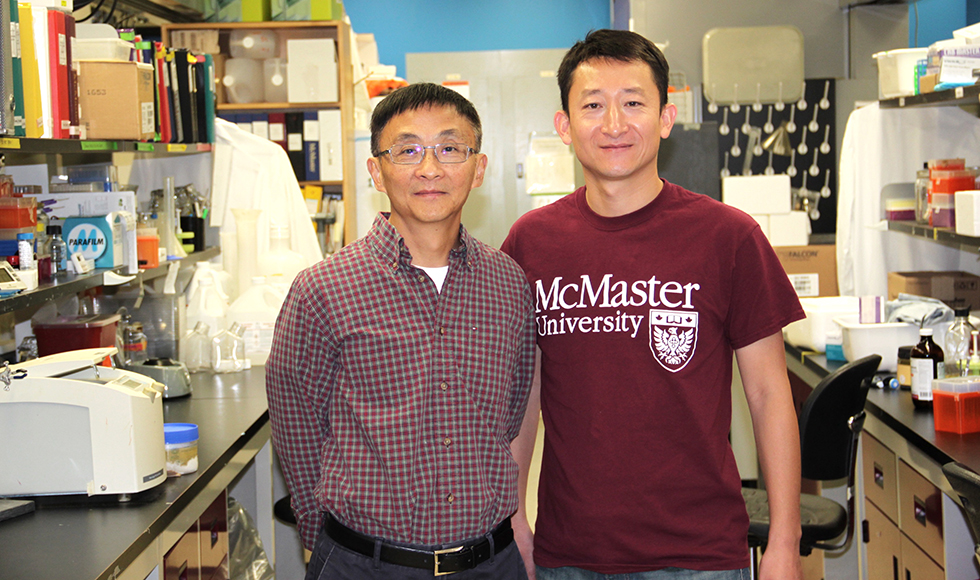Memory immune cell provides new target for vaccine development

Professor and immunologist Zhou Xing (left) and Yushi Yao, first author and a postdoctoral fellow.
October 26, 2018
A new study published in the journal Cell unravels the novel ability of a type of immune cell in the lung to remember past experiences.
The research, led by McMaster University professor and immunologist Zhou Xing, revealed that these cells – known as innate immune cells – were capable of forming immunological memories following viral lung infection. The study also shed light on how that innate immune memory is formed.
“Until recently, it was widely understood that the ability of cells to remember past experiences was largely attributed to cells involved in adaptive immunity,” said Yushi Yao, first author of the publication and a postdoctoral fellow with Dr Xing.
This is a much slower and more pathogen-specific response to bodily threats than the immediate, non-specific responses of innate immune cells.
“Our study significantly expands what we currently know about immune memory and reveals an exciting new target for developing effective vaccine strategies.”
Immune memory is an essential component of human survival, enabling the body to more effectively fight off infections that are caused by dangerous pathogens.
“The vast majority of vaccines are designed to induce adaptive immune memory only,” said Zhou Xing, a professor of the McMaster Immunology Research Centre and investigator within the Michael G. DeGroote Institute for Infectious Disease Research who is currently evaluating the potential of a tuberculosis vaccine built upon the virus used in the study.
“Our research suggests that vaccines can be rendered much more powerful and widely effective if they are developed to induce both adaptive and innate immune memory responses, which can enhance protection against not only the targeted pathogens but unrelated bugs as well.”
They said the finding may offer hope for the development of more effective human vaccinations against globally devastating respiratory infections such as tuberculosis, influenza, and pneumonia.
The study was supported by the Canadian Institutes of Health Research, the Natural Sciences and Engineering Research Council of Canada, and the Ontario Thoracic Society.


